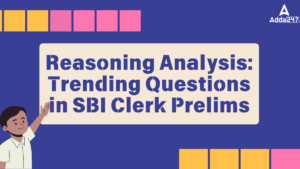ARTICLE 35A AND THE BASIC STRUCTURE
Can Article 35A of the Constitution be struck down? If yes, should it be? These questions — raised in a petition filed in the Supreme Court by a Delhi-based non-governmental organization, “We the Citizens” — have already attracted widespread attention. The case, there’s little doubt, is (1) freighted with political meaning. But when we look beyond the interests of politics, the issues aren’t especially (2) contentious. As a matter of simple legal construction, it ought to be obvious to the court that the petition deserves a (3) resounding dismissal. Any other verdict, which so much as entertains the notion that Article 35A is expendable, will (4) impinge on basic (5) tenets of constitutional interpretation, and will damage the most solemn promises that lie at the heart of the Indian federation.
Article 35A was inserted into the Constitution as part of a raft of amendments made through a 1954 presidential order, imposed under Article 370. The Article further exempts such legislation from being (6) annulled on the ground that they infringe one or the other of the fundamental rights guaranteed by the Constitution. According to the petitioner, this immunity granted to J&K’s laws is discriminatory, and, therefore, Article 35A should be declared unconstitutional. The law on the subject is well settled. Previous Benches have already put their imprimatur on the 1954 presidential order. India’s Constitution, as the political scientist Louise Tillin has explained, establishes a form of asymmetric federalism, in which some States enjoy greater autonomy over governance than others. This asymmetry is typified by Article 370 — a provision, as Ms. Tillin writes, which was debated for over five months before forming part of the Constitution as adopted in 1950. In its original form, Article 370 accorded to J&K a set of special privileges, including an (7) exemption from constitutional provisions governing other States.
However, with the disbanding of J&K’s Constituent Assembly in 1956, the question of suspending Article 370 was rendered (8) moot. It is equally (9) fallacious to suggest that Article 35A can somehow be subject to a basic structure challenge. The canonical rule established in 1973, in Kesavananda Bharati v. State of Kerala, that the powers of amendment under Article 368 are not plenary and that the Constitution’s basic features cannot be (10) abrogated, was based expressly on an interpretation of the text of Article 368. Its logic doesn’t extend reflexively to amendments made under Article 370, a provision, which in and of itself, is essential to maintaining India’s federal structure.
1. FREIGHT (verb) भरना
Meaning: be laden or burdened with.
Synonyms: pervade, overload, weigh, expedite, oppress, consign, load up, cast, impart.
Antonyms: disburden, offload, relieve, discharge, alleviate, unlock, evacuate, unload.
2. CONTENTIOUS (adjective) विवादास्पद
Meaning: causing or likely to cause an argument.
Synonyms: controversial, disputable, debatable, disputed, contended, vexed, ambivalent, quarrelsome, bellicose, unresolved, pugnacious.
Antonyms: peaceful, agreeable, irrefutable, solicitous, indubitable, amiable, incontrovertible, conciliatory.
3. RESOUNDING (adjective) शानदार
Meaning: marked by or uttered with forcefulness
Synonyms: aggressive, assertive, dynamic, energetic, forceful, full-blooded, muscular, strenuous, vehement, vigorous, violent, insistent, marked.
Antonyms: mild, uncompelling, weak, wishy-washy, ambiguous, equivocal, halting, hesitant, understated, non-assertive.
4. IMPINGE (verb) टकराना
Meaning: have an effect, especially a negative one.
Synonyms: encroach, intrude, entrench, invade, impact, collide, bump, strike, meddle, influence, hurtle, obtrude, clash.
Antonyms: avoid, dodge, miss, skim, hedge, eulogize, fulfill, eulogize.
5. TENETS (noun) सिद्धांत
Meaning: a principle or belief, especially one of the main principles of a religion or philosophy.
Synonyms: doctrine, precept, creed, credo, dogma, canon, credo, conviction, persuasion, idea, view, opinion, postulation, presumption, ideology.
Antonyms: disbelief, skepticism, doubt, disorientation, proof, entity, atheism.
6. ANNUL (verb) निष्फल करना
Meaning: declare invalid (an official agreement, decision, or result).
Synonyms: nullify, invalidate, void, repeal, reverse, rescind, revoke, cancel, abolish, countermand, withdraw, quash, vacate, negate.
Antonyms: enact, legislate, establish, institute, formalize, legalize, legitimate, validate, pass, ratify, allow, approve, authorize, endorse.
7. EXEMPTION (noun) छूट
Meaning: the action of freeing or state of being free from an obligation or liability imposed on others.
Synonyms: immunity, exception, dispensation, indemnity, exclusion, freedom, release, relief, absolution, exoneration, privilege, impunity, derogation.
Antonyms: exposure, liability, openness, susceptibility, susceptibleness, vulnerability.
8. MOOT (adjective) विवाद-ग्रस्त
Meaning: subject to debate, dispute, or uncertainty.
Synonyms: debatable, arguable, questionable, doubtful, disputable, contestable, controvertible, problematic, controversial, unresolved, unsettled.
Antonyms: accomplished, certain, inarguable, incontestable, incontrovertible, indisputable, indubitable, irrefragable, settled, unanswerable, unarguable, unchallengeable, undeniable.
9. FALLACIOUS (adjective) तर्कहीन
Meaning: based on a mistaken belief.
Synonyms: erroneous, false, faulty, flawed, inaccurate, misinformed, misguided, misleading, deceptive, delusive, delusory, illusory, sophistic, specious, fictitious, spurious, uncorroborated.
Antonyms: sane, sensible, sober, wise, enlightened, , reasoned, cogent, compelling, convincing, substantiated, validated, logical, rational, reasonable.
10. ABROGATE (verb) अभिनिषेध करना
Meaning: repeal or do away with (a law, right, or formal agreement).
Synonyms: repudiate, revoke, repeal, rescind, overturn, annul, cancel, break off, invalidate, nullify, void, stop, quash, scrap; disaffirm, avoid, vacate, vitiate.
Antonyms: legislate, validate, pass, ratify, allow, approve, authorize, permit, sanction, warrant, command, decree, mandate, order, prescribe.







 The Hindu Review October 2022: Download ...
The Hindu Review October 2022: Download ...
 Reasoning Analysis: Trending Questions i...
Reasoning Analysis: Trending Questions i...
 NABARD Grade A Final Result 2025 Out, Ch...
NABARD Grade A Final Result 2025 Out, Ch...




